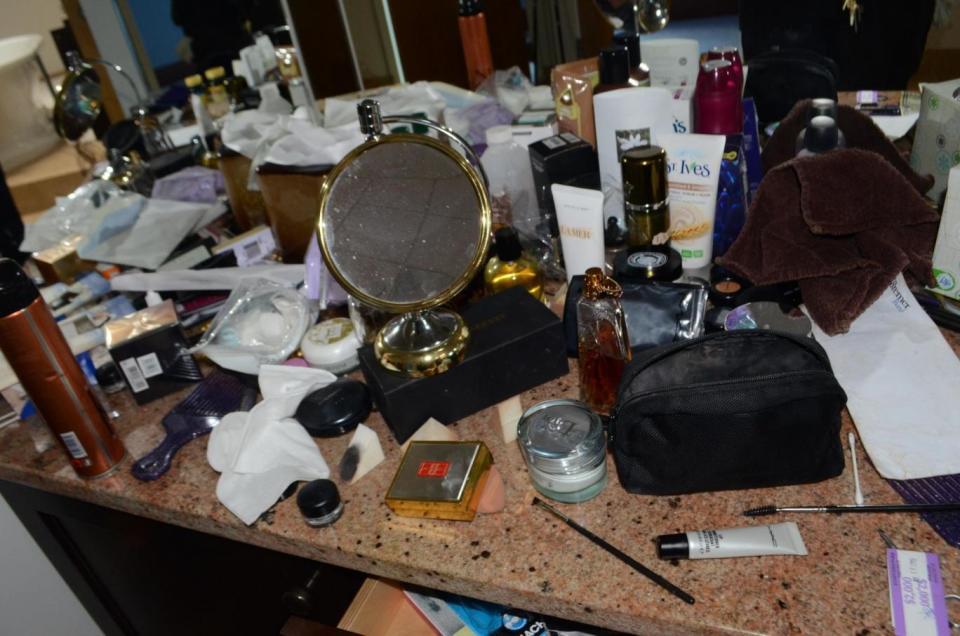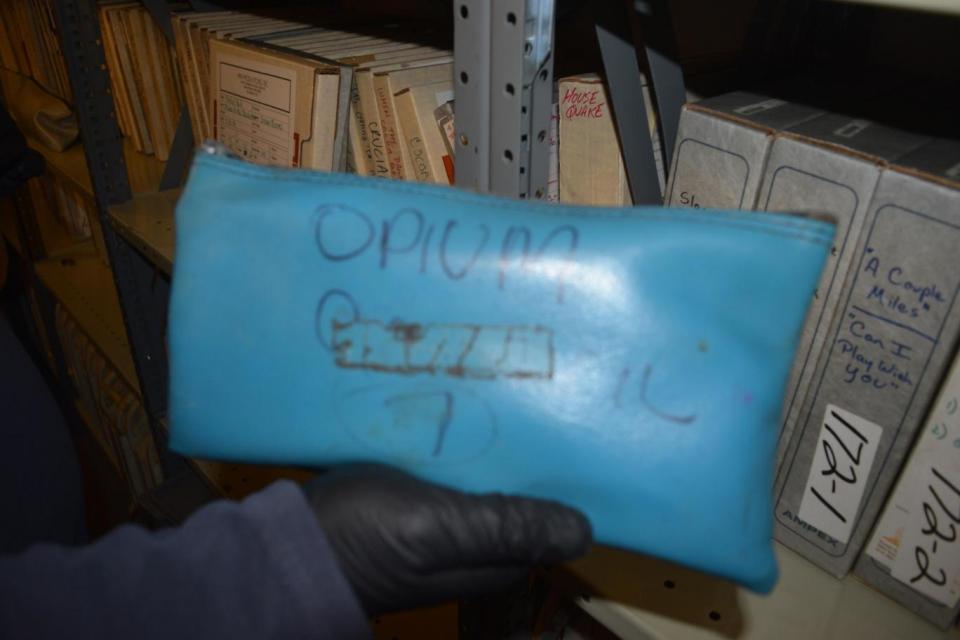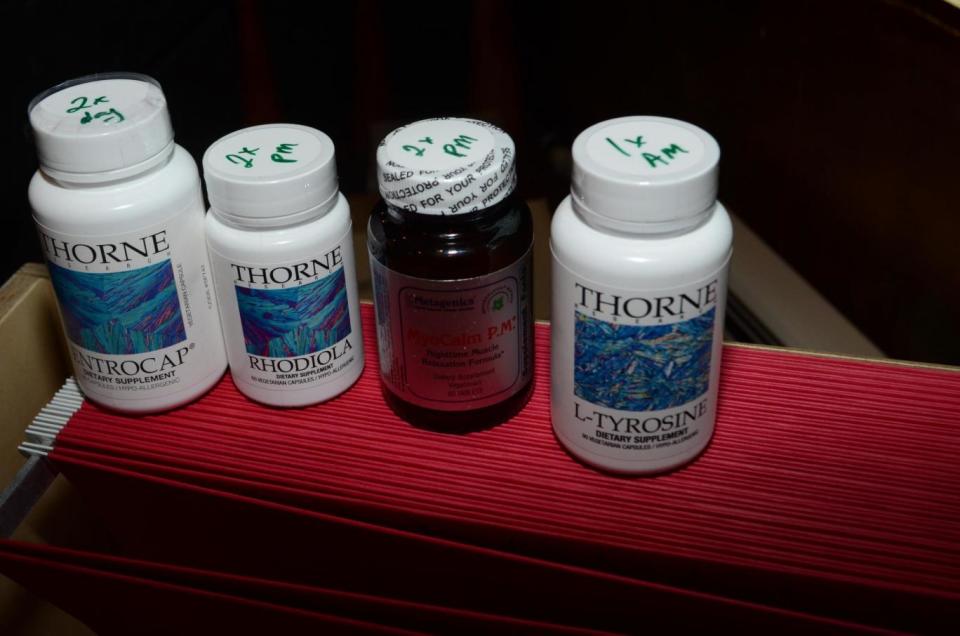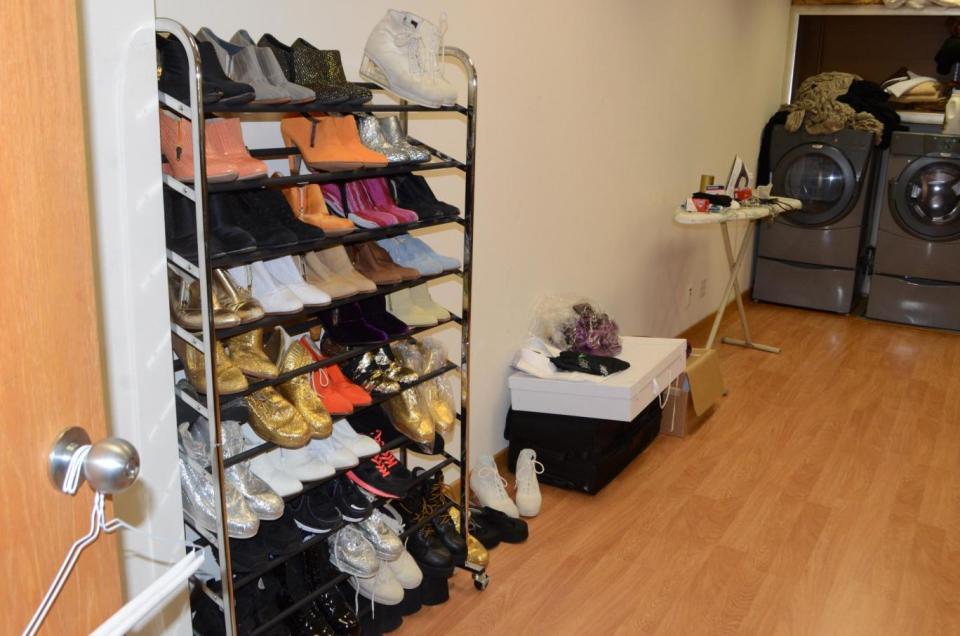Prince's final movements in days before his death revealed in never-before-seen footage
Never-before-seen footage has emerged of Prince’s final movements days before his death as investigators revealed no one would face criminal charges over his fatal overdose.
CCTV, released as the second anniversary of the superstar’s death on April 21 approaches, shows him at his doctor’s office just days before he was found collapsed at his Paisley Park home.
The 57-year-old is seen walking through a corridor in the office of physician Dr Michael Todd Schulenberg with his assistant Kirk Johnson.
The clip was released along with photos from the police investigation launched after Prince was found dead alone near an elevator.

Images showed pill bottles labelled in Kirk Johnson’s name, white power on surfaces in the singer’s home and a spot by a lift where he was found unconscious.

A transcript of a 911 call made following the discovery of the singer reveals the caller told handlers: “The person is Prince.
“The person here is dead.”

The documents emerged as prosecutors said they would not file any criminal charges over Prince’s death which was caused by an accidental overdose of fentanyl, a synthetic opioid 50 times more powerful than heroin.
Mr Metz said he believed the singer thought he was taking painkiller Vicodin but the pills were laced with fentanyl.

Carver County Attorney Mark Metz said: "My focus was lasered in on trying to find out who provided that fentanyl, and we just don't know where he got it.
"We may never know. ... It's pretty clear from the evidence that he did not know, and the people around him didn't know, that he was taking fentanyl."
The documents include interviews with Prince's inner circle.

In a discussion with police Mr Johnson told investigators that he had noticed Prince "looking just a little frail," but said he did not realise he had an opioid addiction until he passed out on a plane a week before he died.
"It started to all making sense though, just his behaviour sometimes and change of mood and I'm like oh this is what, I think this is what's going on, that's why I took the initiative and said let's go to my doctor because you haven't been to the doctor, let's check it all out," Mr Johnson said, according to a transcript of an interview with investigators.
Mr Johnson said after that episode, Prince cancelled some concerts as friends urged him to rest.

Mr Johnson also said that Prince "said he wanted to talk to somebody" about his addiction.
Mr Johnson asked his own doctor, Dr Schulenberg, to see Prince on April 7.
Dr Schulenberg told authorities he gave Prince an IV; authorities said he also prescribed Vitamin D and a nausea medication under Johnson's name.
Mr Johnson called the medic again on April 14 and asked the doctor to prescribe a pain medication for a problem with Prince's hip.

On the night of April 14 to April 15, Prince passed out on a flight home from Atlanta, and the private plane made an emergency stop in Moline, Illinois.
The musician had to be revived with two doses of a drug that reverses effects of an opioid overdose.
A nurse at the hospital where Prince was taken for monitoring told detectives that he refused routine overdose testing that would have included blood and urine tests. When asked what he had taken, he didn't say what it was, but that "someone gave it to him to relax."
Other documents say Prince said he took one or two pills.
The documents show that Mr Johnson contacted Dr Schulenberg again on April 18, and expressed concern that Prince was struggling with opioids.
A confidential toxicology report obtained by the AP in March showed high concentrations of fentanyl in the singer's blood, liver and stomach.
The concentration of fentanyl in Prince's blood alone was 67.8 micrograms per litre, which outside experts called "exceedingly high."
Prince did not have a prescription for fentanyl.
Metz said several pills were found at the Paisley Park complex after Prince died, and some were later determined to be counterfeit.

 Yahoo News
Yahoo News 
